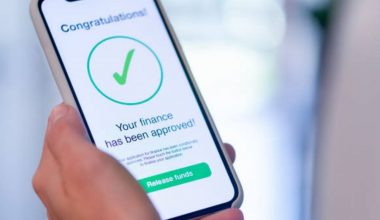Taking out a loan without having a job is not advised since it puts your financial security at risk. Besides, with bad credit and no job, it may be difficult to get approved for a loan. That’s because one of the most important prerequisites for securing a loan is often a history of consistent income. In this article, we have explained how to get a loan without a job, even in Canada where it might seem a little difficult.
Overview
Anyone going to apply for a loan without a job knows that there are little or no chances of getting the loan. However, there are times when lenders might consider providing you with a loan regardless of whether you are unemployed, or without a business provided you can convince them that you can make regular payments when you should and on time. But then, you shouldn’t just jump into applying for a loan. You should first consider the hazards associated with borrowing money without a job before you apply for a loan. You should also find out how lenders evaluate loan applicants.
It’s advisable to refrain from taking on debt if you don’t have a job or another source of income and can’t afford to take out a personal loan. However, if you are able to pay it and have regular non-employment income like social security or retirement money, doing so could help you receive the funding you require.
Furthermore, to determine whether you are qualified to get a loan without a job, lenders evaluate a number of variables, including your credit risk and ability to repay the loan. Your income, credit history, and credit score are some of the most prevalent factors.
A lender will consider giving a loan based on these three key factors.
#1. Strong Credit History
Lenders may be confident that you manage debt responsibly if your credit report shows a history of on-time payments with few to no late or missed payments (particularly in recent years). Additionally, most lenders like credit reports free of adverse items like foreclosures or bankruptcies.
#2. Regular Income
You must have one or more consistent sources of income that are enough to cover your monthly costs and leave you with enough money to make your loan payments. It need not be from a paycheck. However, your lender may want to check your financial records to confirm any additional income sources if you cannot show proof of employment. If you do not have a job, your lender will consider some unemployment benefits like
- Public assistance
- Government annuity payments
- Social Security benefit payments
- Regular trust payments
#3. Credit Score
For various kinds of loans, lenders often set minimum credit score limits, and they save their best loan offers—the ones with the lowest interest rates and fees—for those who meet these criteria. The FICO credit scoring model is one of the most widely used by lenders. This type has a 300 to 850 range. Furthermore, FICO calculates the score based on your payment history, amount of debt owed, credit mix, length of credit history, and new credit accounts.
Risks Associated With Borrowing Without Having a Job
Regardless of your employment status, it’s important to be completely honest with yourself about your ability to repay any loans completely and on time before taking them out. Remember one late payment can have a detrimental impact on your credit, and defaulting will totally put a permanent stain on your record.
Even if you may be able to get a loan while unemployed, you should be aware of potential risks, such as:
#1. Higher Fees and Interest Rates
The lender will probably demand higher interest rates and fees to make up for lending money to a high-risk applicant. Additionally, since origination fees are taken from the loan amount, paying a greater origination charge due to your lack of income may result in a smaller loan amount.
#2. Damaging Your Credit Score
If you don’t pay back or default on a personal loan, it could have a negative influence on your credit score. This could increase your borrowing costs and make it more difficult for you to qualify for future loans.
#3. Getting a Loan With a Reduced Principal Amount
If you are eligible for any money at all while you’re unemployed, your lack of income will probably result in you receiving a smaller sum of money than you normally would.
How to Get a Loan Without a Job and Bad Credit
Many individuals right now are struggling to make enough money to survive. Some people turn to get a loan without a job and with bad credit just to get through these difficult times.
Furthermore, loans are more likely to be denied if you don’t have a job or a good credit score. But obtaining a loan in these circumstances is not absolutely impossible. Although lenders will be reluctant to offer you a loan if you don’t have a job and have a bad credit score. You might be able to borrow a small sum of money that you can repay more quickly, but the drawback is that the loan will come with higher interest rates. There are other options available to you if you decide you need a loan without a job and a bad credit score.
Having a bad credit history will also have a negative impact. A larger loan or an interest rate reduction might not be available to you. So to improve your chances of getting a loan, you can do the following:
- Having a guarantor can improve your loan eligibility.
- If you don’t have a job, you can provide alternative sources of income, such as pension funds, investments, etc., to demonstrate your ability to make payments on time each month.
- One may provide collateral in exchange for a loan. In this way, lenders will always have security in the event that you miss a payment.
- To win the lender’s confidence, you can put down a sizable down payment. They will understand that you are credit-responsible in this manner.
- Payday loans are a type of short-term loan where no income documentation is necessary.
How to Get a Loan Without a Job in Canada
When you’re out of work, it’s difficult to expect to receive money. Many financial institutions take their time deciding whether or not to give a loan. This is one of the main reasons why no financial institution wants to take a loss on funds that cannot be recovered.
Even if you are out of work, you may still be able to get a loan if you have a steady source of income. There are a number of payday or installment loan providers that can issue loans in as little as an hour without demanding proof of employment, unlike the majority of personal loan providers in Canada. There is no requirement that you have a job to be eligible for these loans, as other factors such as your credit score and non-employment income are taken into account. In other words, if you want to apply for a loan in Canada but don’t have a job, you must have this.
#1. Income
You must still make enough money to be able to pay back your loan. Welfare, unemployment assistance, the Canadian Child Benefit, pensions, and other government benefits are acceptable basic income sources.
#2. Decent Credit
It’s not always a deal-breaker if you have a few bad marks on your credit record. On the other hand, having poor credit, a history of late payments, or a recent bankruptcy can restrict your alternatives, raise your interest rate, or result in a denial.
Documents Needed for Getting a Loan Without a Job in Canada
Some required documents needed for getting a loan without a job in Canada are:
- A utility bill or another form of address verification
- Government-issued photo ID, such as a passport or driver’s license
- Social Security Number (SIN)
- Most recent bank statements (proof of income & active bank account)
- A pre-authorized debit form
What Types of Loans Can You Get Without a Job in Canada?
Some people may be relying on government help, such as the child tax credit, maternity benefits, employment insurance, and other unconventional sources of income, including RRSP withdrawals. As previously stated, many borrowers who apply for loans are without work proof, are unemployed, or even have no regular source of income.
You may have to show that you have sufficient assets, a good credit score, or sufficient non-employment income, depending on the type of loan you desire. These non-work income examples include the Canada Child Benefit (CCB), employment insurance (EI), disability, investment returns, or your pension.
Here are some types of loans you can get
#1. Installment Loan or Personal Loan
Due to their lower interest rates, larger loan amounts, and longer durations, personal loans are typically preferable to payday loans. Furthermore, lenders will need to confirm your source of income, although it frequently isn’t necessarily from a job. Several installment lenders accept government benefits, including CCB, disability payments, and EI income.
#2. Payday Loans
A payday loan is a small, up to $1,000-$1,500 loan that is costly. Usually, you pay it back when your next paycheck arrives. Without requiring proof of work, the fastest payday lenders in Canada can provide loans for one hour. The only thing you’ll need to do is ensure that your bank account supports e-transfer, the fastest way of funding.
#3. Guarantor Loans With Employment Verification
Getting a guarantor loan is another way you could be approved for a loan without having your employment verified. In essence, a guarantor loan is a loan to which you have added a cosigner. A cosigner is someone who voluntarily agrees to assume responsibility for your loan should you fail to make your payments.
How to Get Loan Approval in Canada Without a Job?
There are a variety of requirements depending on the lender. But there are certain factors that financial institutions constantly take into account when evaluating applications, such as credit scores and income. You need to learn about the typical requirements you’ll need to fulfill and the supporting papers you’ll need to present before you start looking for a loan. Here are steps to get a loan without a job.
Step 1. Check Your Income
Before applying for any loan, it is advisable to review your finances and credit score to determine your eligibility. If your debt is substantial and your credit score is extremely low, it can be worthwhile to make improvements before applying for a loan.
Step 2. Compare Lenders
Finding the best lender for you will require extensive research to find lenders whose minimum requirements you can meet. You may also utilize a website for loan comparisons to choose a lender willing to extend credit to you.
Step 3. Submit Your Application
Once you’ve decided who you want to apply with, all you really need to do is provide your contact information, personal information, confirmation that you are of legal age, and the amount you want to borrow. You won’t need to show proof of employment, but you will still need to show your lender that you can afford to pay back the loan. Once your application is approved, you will be issued a loan repayment deadline and an interest rate that must be repaid in addition to the loan’s initial principal amount.
Where Can I Get a Loan if I Don’t Have a Job?
Your own financial institution, be it a bank or credit union, is the ideal location to begin. You can also check with internet lenders; however, you will need to do the study to determine whether online lenders offer loans that are suitable for your circumstance. If you have a job or another means of bringing in money, most lenders will be willing to work with you. Find a financial institution that provides secured loans if you are in a position where you need to make use of collateral instead.
Can Assets Make Up for Income if You’re Applying for a Loan?
You might be allowed to use the interest or profits from your investments. However, for the most part, you will either require a conventional source of income or additional possibilities that are more closely related to income, such as alimony, pension payments, or disability payments.
How Do You Get a Personal Loan?
Many people are under the impression that obtaining a personal loan is much more difficult than it actually is. However, the majority of people are aware of the application process for credit cards, and the process of receiving a personal loan is very similar to that. You should, as a general rule, browse around to locate an offer that satisfies your requirements in terms of the loan amount and the period
What Are the Personal Loan Requirements?
Major conditions for obtaining a personal loan include having to be at least 18 years old, having a bank account, having a solid credit history, and having sufficient income or assets to be able to handle the monthly payments on the loan. However, specific conditions for personal loans can differ from lender to lender.
Can You Get a Loan With No Credit?
It is feasible to obtain a loan even if you do not have a credit history; you may do this either on your own or with the help of a co-signer. Credit-builder loans secured personal loans, and home equity loans are some of the loan types that may be available to you if you have neither good credit nor a co-signer.
What’s the Best Way to Get a Loan Without a Job?
Even if you don’t have any sources of income of your own, you might still be able to qualify for a loan with the assistance of a cosigner or co-borrower who has excellent credit.
Conclusion
Without a steady source of income, applying for a loan is a risky move that could jeopardize your financial security. If you must take out loans from lenders, having a major source of income is essential so that you can pay back your loan when the due date approaches.
How To Get A Loan Without A Job FAQs
What are other options besides getting a loan without a job?
- Reduce expenses
- Pick extra work
- Seek out other forms of aid
Can I get a loan if I don't have a job?
Yes. Many personal loan providers are open to taking other forms of income into account. You might be able to get a loan based on your assets if you don’t have any income.
What are the types of loan you can get in canada?
- Payday loans
- Personal loans
- Guarantor Loans With Employment Verification






